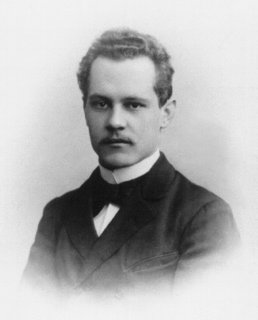A Quote by Keith Devlin
What is mathematics? Ask this question of person chosen at random, and you are likely to receive the answer "Mathematics is the study of number." With a bit of prodding as to what kind of study they mean, you may be able to induce them to come up with the description "the science of numbers." But that is about as far as you will get. And with that you will have obtained a description of mathematics that ceased to be accurate some two and a half thousand years ago!
Related Quotes
If you ask ... the man in the street ... the human significance of mathematics, the answer of the world will be, that mathematics has given mankind a metrical and computatory art essential to the effective conduct of daily life, that mathematics admits of countless applications in engineering and the natural sciences, and finally that mathematics is a most excellent instrumentality for giving mental discipline... [A mathematician will add] that mathematics is the exact science, the science of exact thought or of rigorous thinking.
Mathematics has two faces: it is the rigorous science of Euclid, but it is also something else. Mathematics presented in the Euclidean way appears as a systematic, deductive science; but mathematics in the making appears as an experimental, inductive science. Both aspects are as old as the science of mathematics itself.
Mystery is an inescapable ingredient of mathematics. Mathematics is full of unanswered questions, which far outnumber known theorems and results. It's the nature of mathematics to pose more problems than it can solve. Indeed, mathematics itself may be built on small islands of truth comprising the pieces of mathematics that can be validated by relatively short proofs. All else is speculation.
A number of aspects of mathematics are not much talked about in contemporary histories of mathematics. We have in mind business and commerce, war, number mysticism, astrology, and religion. In some instances, writers, hoping to assert for mathematics a noble parentage and a pure scientific experience, have turned away their eyes. Histories have been eager to put the case for science, but the Handmaiden of the Sciences has lived a far more raffish and interesting life than her historians allow.
The broader the chess player you are, the easier it is to be competitive, and the same seems to be true of mathematics - if you can find links between different branches of mathematics, it can help you resolve problems. In both mathematics and chess, you study existing theory and use that to go forward.
The main duty of the historian of mathematics, as well as his fondest privilege, is to explain the humanity of mathematics, to illustrate its greatness, beauty and dignity, and to describe how the incessant efforts and accumulated genius of many generations have built up that magnificent monument, the object of our most legitimate pride as men, and of our wonder, humility and thankfulness, as individuals. The study of the history of mathematics will not make better mathematicians but gentler ones, it will enrich their minds, mellow their hearts, and bring out their finer qualities.
Just by studying mathematics we can hope to make a guess at the kind of mathematics that will come into the physics of the future... If someone can hit on the right lines along which to make this development, it may lead to a future advance in which people will first discover the equations and then, after examining them, gradually learn how to apply them... My own belief is that this is a more likely line of progress than trying to guess at physical pictures.




































